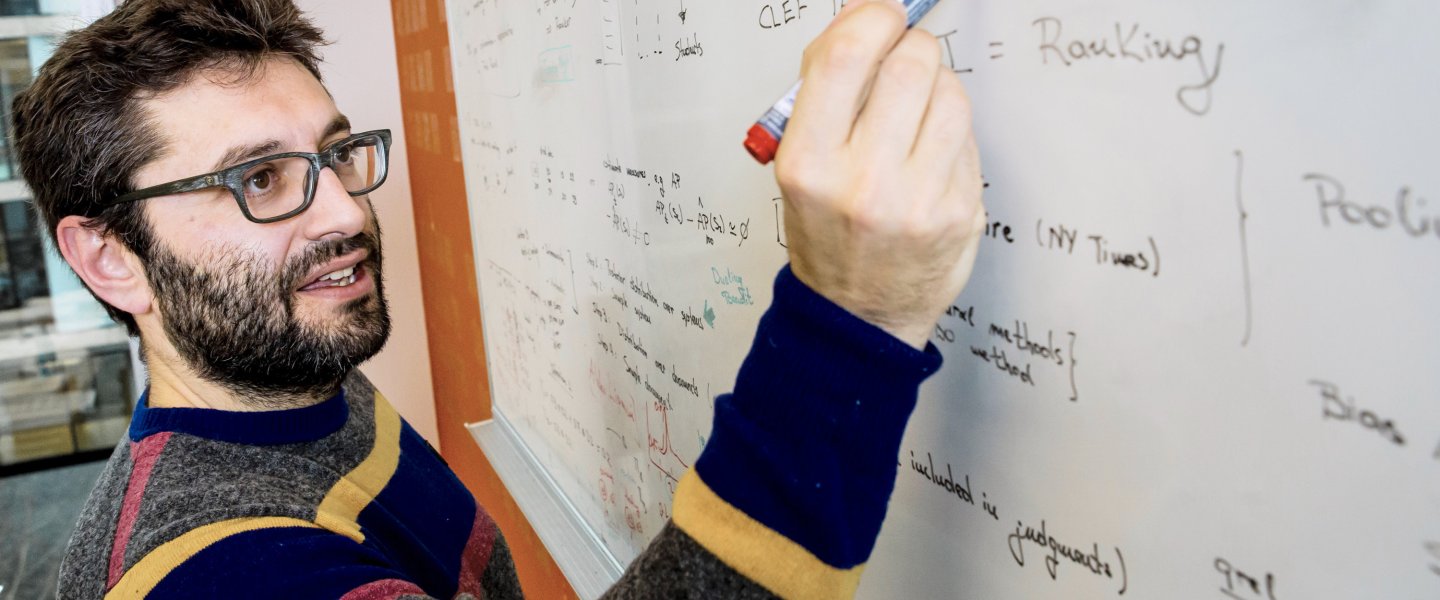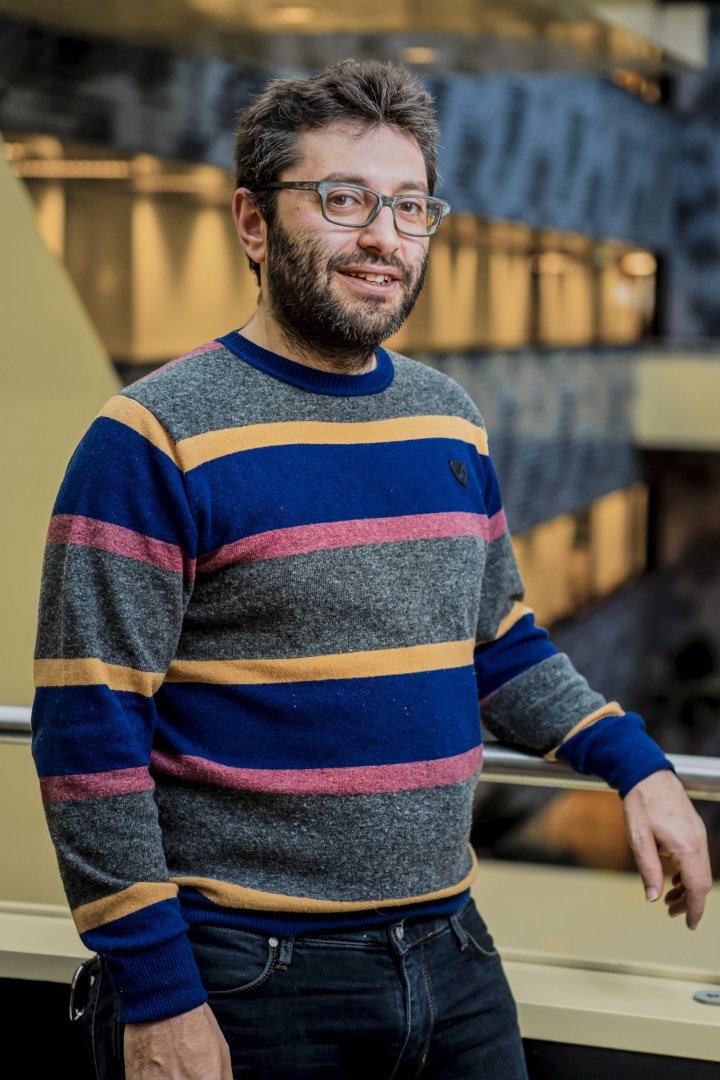
Evangelos Kanoulas: saving lives with AI
Immunotherapy has the potential to cure cancer. But it is an expensive treatment that sometimes has unpleasant side effects and is only effective in 30 per cent of cases. Can AI help? Computer scientist Evangelos Kanoulas works as an associate professor at the Informatics Institute, as well as at the UvA Business School – and he recently founded the start-up Ellogon.AI in order to study this topic.
The goal of the start-up is to develop an algorithm that will help pathologists predict whether a certain form of immunotherapy will be effective for cancer patients. The therapy only works in 30 per cent of cases. A better ability to predict whether the therapy will be worthwhile can save a patient the disappointment of an ineffective therapy that sometimes has major side effects.
The issue of cost plays a role, too, as the therapy is expensive. Yet in the current situation, 15% of patients do not receive this therapy even though they stand to benefit from it. Ellogon.ai could offer a solution for these individuals.

Evangelos explains how the research works: ‘The pathologist takes a biopsy, a small tissue sample, zooms in on it with a microscope and looks for certain biomarkers. Are there enough lymphocytes – a type of white blood cell that causes your own body to attack the cancer – or are there actually certain proteins that block this process? In some cases, there are not enough mutations in the cancer cells, so that the body wants to attack the tumour but is unable to find it. All these kinds of biomarkers give the pathologist an indication of whether or not the therapy will have an effect.’
"The algorithm could also potentially identify new biomarkers, which pathologists can then look for in future."
Don't look in Siberia
‘It is a complicated undertaking,’ according to Evangelos. ‘Imagine you have a Google Earth map of the whole world, on which you want to find every two-storey building there is. The pathologist's strategy is to zoom in on logical potential locations – they don't look in Siberia, but rather in populated areas, and then conduct random sampling.
Our algorithm, however, is capable of running such an analysis to the full extent. The algorithm could also potentially identify new biomarkers, which pathologists can then look for in future.’
Sounds great, but how far along is his research? ‘It already works! For one biomarker, it's at 80%. We can now find 80% of the lymphocytes. The next step is clinical validation of the algorithm. That will take place this year. We are convinced that it works, but we have to let the data speak for itself.’
A strong team
As exciting as it sounds, isn't it all a bit much: conducting research, teaching and all the challenges of running a start-up? ‘The more you do, the more complex it becomes,’ Evangelos admits. ‘But the great thing is the activities actually reinforce one another. My work isn't explicitly in this domain, and now I'm learning a lot about computer vision. That is a good fit for my research group's ambitions, which also benefits my students. What's more, we have a strong team within the company; my role is mostly advisory in nature.’
As a scientist, what makes Evangelos feel proud? ‘AI and computer science have taken tremendous leaps forward in the last few decades. Our group is proud to be part of that revolution and to help make advances in the field. What's more, the research is starting to find real applications in society. As a scientist, you want to understand mechanisms and prefer to work in nice, clean environments, whereas life is messy. Introducing technology into the real world means coping with the messiness of life. I'm proud that we've been able to do that.’
"The research is starting to find real applications in society."
Working in LAB42
The success of his field also has a downside: so many new students have enrolled that the department has outgrown its accommodations and is currently housed in a separate outbuilding. ‘That, in combination with the pandemic, makes for a rather isolated cluster. And collaboration and shared connections are incredibly vital within my field of study.’
In that light, Evangelos is very much looking forward to the move to LAB42. ‘The building will have a special floor just for ‘science-y’ businesses and industrial labs. Hopefully, there will also be a place for my company, which employs mainly colleagues and young researchers who are fresh out of the programme. It will be fantastic to have everything under one roof.’
About Evangelos Kanoulas
- Leading the Information Retrieval Lab (IRLab) at the Informatics Institute;
- Founder of the start-up Ellogon.AI;
- More information on Evangelos' personal page on the UvA site.